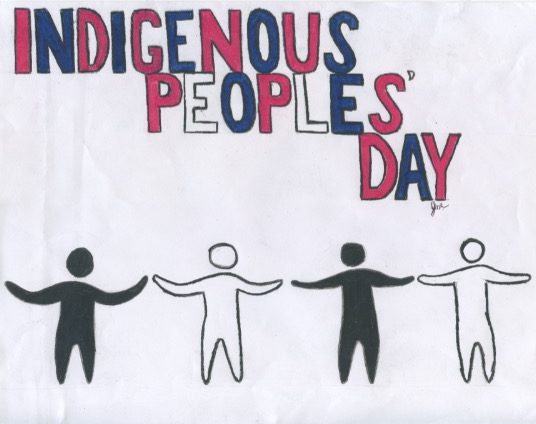Columbus Day replaced with Indigenous Peoples’ Day
In school, it was normal to learn about when Christopher Columbus sailed to America in 1492 in search of a new trade route to Asia. While he did not find Asia, he came across a new land that is what we now know to be America. His discovery led to Columbus Day becoming a national holiday. Freedom, along with many other places, receive a day off of school on Oct.14 in honor of him. It’s when a student gets older, however, that they learn the less child-friendly version of what happened.
Columbus went on four voyages in an attempt to sail to Asia. He wanted to find a shortcut for trade routes. He landed in the Caribbean and focused the rest of his voyages on the islands. This resulted in the Columbian Exchange of goods between the old and new worlds.
Though Columbus discovered new land, there were already Natives living there. These Natives weren’t immune to the diseases that the Europeans brought. These diseases killed many people. Although he made economic advances, he also enslaved the native people.
“Though his actions were frowned upon, he did make an impact on history,” history teacher Nathanial Langelli said.
He died after his fourth voyage, still believing that he’d reached Asia. The first Columbus Day celebration was held on the 300th anniversary of his first voyage. It is recognized nationally in the United States, resulting in no school or work in some places.
In 1977, the Conference on Discrimination Against Indigenous Populations in the Americas brought up replacing Columbus Day with Indigenous Peoples’ Day. The following states don’t recognize or celebrate Columbus Day: Florida, Hawaii, Alaska, Vermont, South Dakota, New Mexico and Maine. They have chosen to replace it with Indigenous Peoples’ Day, Discoverers’ Day or Native American Day.
For many Italian people, Columbus is considered as someone to be proud of and is celebrated. So it’s not just about him and his discoveries, it also showcases Italian-American heritage.
There has been an increase of citizens against Columbus Day and in favor of replacing it with a different holiday. A study showed an overwhelming amount of students attending post-secondary school wanting to change the holiday, some of which have dedicated essays to it.
“Some might defend his use of slaves as a practice that was common at the time and reflective of the lack of development or sense of human rights that was typical of the era. Such a defense does not properly acknowledge the devastation of enslaving an entire group of people,” one essay said.
Part of this increased disapproval could be attributed to the rise of Native American activism not only in the United States but around the world. With protests and Native Americans speaking up, the public being swayed is understandable. Columbus is a part of their heritage as well, despite being in a more negative light than he is to Italian-Americans. This could also be due to more information being available than people learned in school originally.
Columbus is not the only controversial historical figure. Multiple people throughout history have done great things through questionable means. It remains important that people learn from these mistakes to try to prevent repeating these offenses.



